NIGEB's Technology Deputy: Driving Innovation and Commercialization - Intl Nigeb Web
Enterprises are Sweet Results of Knowledge-based Technologies
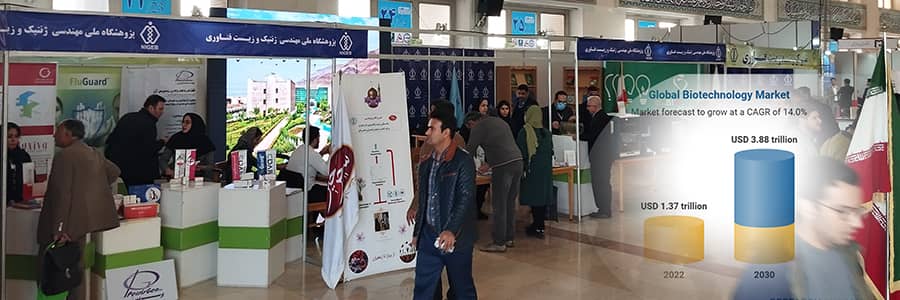
About Us
About Us
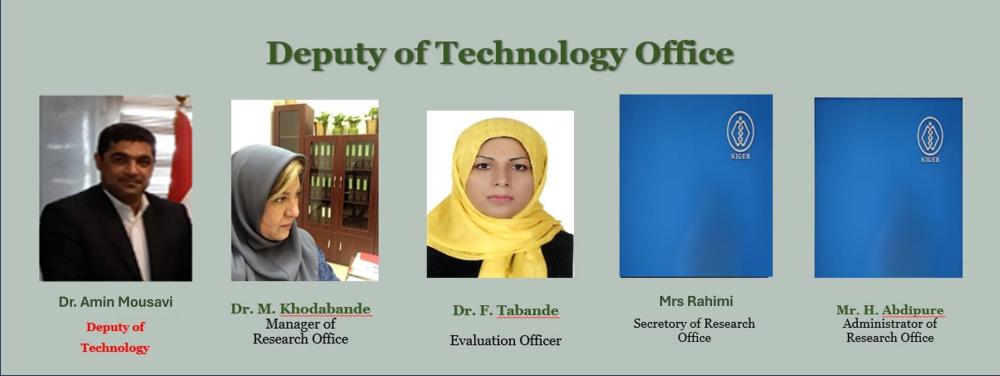
aiming to establish a suitable platform for the development, support, and commercialization of knowledge-based biotechnologies, encompasses the following subunits:
- Biotechnology Development Center
- Commercialization Management and Industry Liaison
- Intellectual Property Group
- Specialized Services Management
- The main tasks of these units are as follows

Description of the Deputy of Technology's tasks based on the approved strategic plan
- Extensive efforts to introduce the practical scientific research capabilities and achievements to the market
- Announcement of mission-oriented needs and demand-driven projects to the institute's faculty members
- Efforts to collect, document, and update technical knowledge resulting from research projects and deliver it to applicants
- Interaction with research centers and research groups to examine and identify technology development projects to complete the full cycle of required biotechnology and genetic engineering technologies in the country
- Providing a platform for the implementation of national projects with investment potential and competitive advantage for sustainable development
- Development of a comprehensive system for technology transfer and intellectual property regulations and evaluation
- Providing financial, scientific, technical, and legal support to innovative faculty members and researchers (inventors, innovators, and entrepreneurs) to foster creativity and innovation
- Formulation and adoption of policies, strategies, and priorities for biotechnology development at the institute based on the country's twenty-year vision document (till 1404 AH)
- Formulation of technical knowledge transfer mechanisms and registration and analysis of innovation-related information in the field of biotechnology while preserving the rights of both parties
- Efforts to attract and allocate the necessary budget and funds for technology development projects and provide facilities in line with the priorities formulated by the Technology Council, the institute's board of trustees, and the High Council of Biotechnology
- Implementing necessary structural reforms in the technology department to adapt to dynamic activities
- Drafting executive regulations and required guidelines and proposing them to the Technology Council and the institute's board of trustees
- Promotion of an entrepreneurial organizational culture, wealth creation, and income generation through the transfer of technical knowledge and the provision of diagnostic services, research, and development services to individuals and legal entities
- Support for the establishment of knowledge-based companies and constructive interaction with parks and biotechnology growth centers
- Development of necessary mechanisms for concluding technology contracts with individuals and legal entities in accordance with the institute's financial and transaction regulations and facilitating joint investment by domestic and foreign biotechnology firms to achieve advanced biotechnology on a global scale
Biotechnology Development Center
Biotechnology Development Center
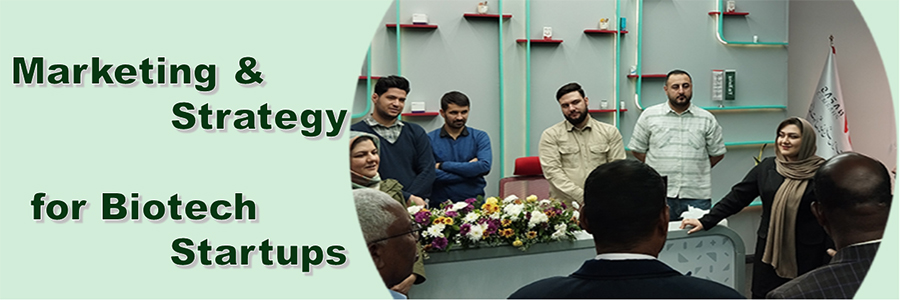
Aligned with the goals of the twenty-year vision document for progress and development, the production of science and technology is among the factors that require increased attention from managers, experts, professors, elites, and statesmen for the development and empowerment of the Islamic Republic of Iran based on the Islamic-Iranian development model. In line with this, a significant mission has been entrusted by the Ministry of Science, Research, and Technology to research institutes, including the National Institute of Genetic Engineering and Biotechnology, to develop innovative technologies and commercialize scientific and research achievements for the benefit of the country. Creating necessary infrastructures for its implementation within the framework of the institute's vision and mission is imperative. Among the essential units for the development of biotechnologies and commercialization of relevant scientific and research achievements is the "Biotechnology Technology Development Center" with the following duties.
Description of Duties
The Biotechnology Technology Development Center is tasked with achieving a leading position in the development of biotechnologies at the national and regional levels, identifying, facilitating, and managing the implementation of biotechnology development projects.
Duties:
- Discovery of needs, ideas, and biotechnological projects
- Scientific and technical review of technology projects and submission of expert and performance reports to the Technology Deputy for approval
- Guiding, supervising, evaluating, and/or implementing biotechnology development projects
- Provision of necessary infrastructure for the implementation of technology development projects
- Provision of consultancy and scientific-technical services in the field of biotechnology development
- Providing mechanisms for the transfer of developed technologies
- Operational Areas:
- Food and Drug Biotechnology:
- Vaccines and non-combinational drugs
- Biotechnology-based food products and supplements
- Industrial and Environmental Biotechnology:
- Industrial enzymes
- Bioenergy
- Biotechnology in oil, gas, and petrochemical industries
- Bioremediation
- Mining and metal recycling biotechnology
- Medical Biotechnology:
- Disease diagnosis
- Cell therapy
- Gene therapy
- Plant Biotechnology:
- Genetically modified plants
- Biofertilizers and biopesticides
- Tissue culture
- Molecular breeding
- GMO detection
- Production of plant-derived substances
- Plant disease diagnosis
- Animal, Poultry, and Aquatic Biotechnology:
- Molecular disease diagnosis
- Molecular breeding
Definitions
- Technology
The creation, improvement, usage, and knowledge of tools, machines, techniques, systems, and methods for solving problems, improving existing solutions, and achieving a specific function, and employing inputs and outputs or performing a specific function (Wikipedia).
- Biotechnology
The use of living organisms or their components to develop technology for the production of goods or services.
- Technical Knowledge
Practical knowledge required to implement a technology (in addition to verbal and written knowledge).
- Technology Transfer
The process of transferring skills, knowledge, techniques, manufacturing methods, equipment, and facilities and sample products from universities or research institutes, both domestically and internationally, to users (Wikipedia).
- Royalty
Monetary rights arising from intellectual property ownership received in exchange for transferring intellectual property to natural and legal persons.
- Technology Development
The conversion of ideas or research results into technology in such a way that it is suitable for investment in product production.
- Vision
Achieving a leading position in the development of biotechnologies at the national and regional levels.
- Mission
Identifying, facilitating, and managing the implementation of biotechnology development projects.
- Objective
Development of biotechnologies based on research results and entrepreneurial ideas.
Commercialization Management and Industry Liaison
Commercialization Management and Industry Liaison
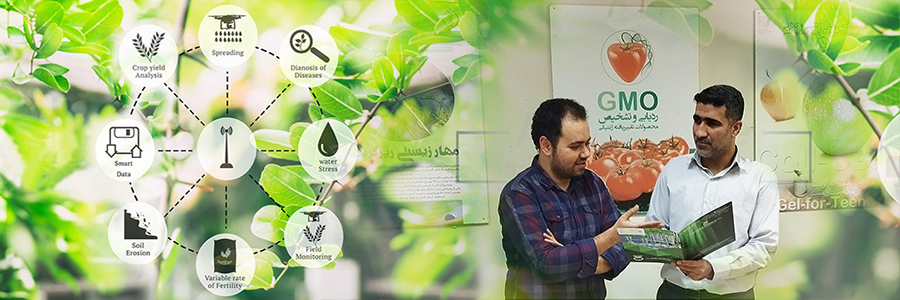
Commercialization management and industry liaison play pivotal roles in achieving the goals of the National Institute of Genetic Engineering and Biotechnology in the field of developing and transferring biotechnological technologies to society and industry. The following tasks are outlined to elucidate the responsibilities and authorities of this management.
Tasks
- Identification of societal needs in biotechnology
- Conducting studies and necessary research to identify societal needs in various biotechnology domains.
- Prioritizing identified needs based on predetermined criteria.
- Planning and guiding research projects of the institute related to societal needs.
- Consultancy services
- Providing consultancy services for developing technical and economic feasibility studies (F.S, Pre. F.S) and business plans (B.P) to faculty members, industry owners, and other stakeholders.
- Offering consultancy services, technical assistance, and laboratory services to faculty members, industry owners, companies, and other scientific and research centers in the field of biotechnology.
- Engagement with supporting entities
- Establishing effective and active communication with supporting entities (domestic, international centers, and non-governmental organizations) by the innovators and researchers of the institute.
- Soliciting financial and moral support from supporting entities for commercialization-related projects and initiatives.
- Contract negotiation
- Preparing necessary contracts regarding the sale, production, and marketing of biotechnological products of the institute with industry owners from both the private and public sectors.
- Ensuring the rights and interests of the institute in the concluded contracts.
- Documentation and standardization
- Implementing programs related to process documentation and implementing valid scientific standards on a laboratory scale.
- Enhancing the quality and competitiveness of biotechnological products and services.
- Marketing and technology transfer
- Participating in specialized exhibitions for marketing and transferring or purchasing technical knowledge of biotechnological products.
- Introducing and promoting biotechnological products and services to society and industry.
- Collaboration with industry owners
- Collaborating with industry owners and production centers to achieve and optimize production processes.
- Advancing the level of knowledge and technology in industries related to biotechnology.
- Support for knowledge-based companies
- Creating facilities and suitable platforms for establishing knowledge-based companies and specialized parent companies to involve institute faculty members and other scientific institutions in the development of biotechnological technologies.
- Facilitating the commercialization and technology transfer process.
- Training and promotion
- Holding workshops and specialized seminars to familiarize researchers with the process of commercializing biotechnological products.
- Enhancing the level of knowledge and awareness of society in the field of biotechnology.
- Obtaining necessary licenses
- Providing facilities to obtain licenses for the reference laboratory in various biotechnology domains.
- Obtaining required licenses in the process of commercializing technical knowledge from relevant authorities.
- Evaluation and reporting
- Developing evaluation criteria for the stages of technical knowledge development and technology dossier for institute faculty members.
- Evaluating the performance of technology projects and preparing expert reports for the deputy and technology council and other relevant authorities.
- Interaction with governmental and private sectors
- Interacting with governmental and private sectors in establishing and founding small and large business centers to facilitate the commercialization process and the development of technical knowledge and technology transfer.
- Developing intersectoral collaborations in the field of biotechnology.
Conclusion
Commercialization management and industry liaison, relying on tasks and authorities, play crucial roles in advancing the institute's goals and fostering biotechnological innovation and development.
Intellectual Property Group
Intellectual Property Group
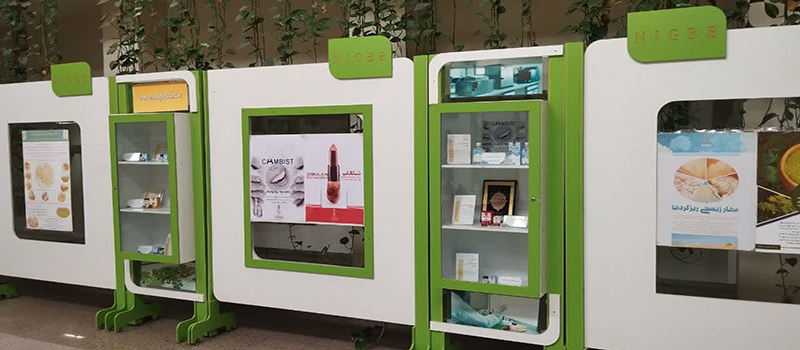
- Decision-making regarding the registration and management of intellectual property assets of the research institute by the Intellectual Property Committee of the institute.
- Providing consultation services related to intellectual property matters to the faculty members and organizational units of the institute.
- Assessing the research achievements of the institute in terms of their registrability at national and international levels.
- Determining and managing intellectual property rights resulting from research projects and technology development based on the institute's intellectual property policy regulations.
- Offering consultancy and technical services to innovative researchers (inventors, innovators, and entrepreneurs) and guidance on the registration and management of intellectual property assets and patent prior art searches.
- Cultivating awareness, dissemination, and education on the registration and preservation of intellectual property rights through organizing internal and external workshops and seminars.
- Providing necessary arrangements for the analysis and arbitration of projects and technical knowledge belonging to natural and legal persons external to the institute in the field of biotechnology.
- Drafting regulations and rules necessary for providing a transparent framework and elucidating the rights and obligations of the institution, creators, and supporters concerning created intellectual assets, thereby reducing disputes regarding intellectual property rights.
- Evaluating the commercialization potential of intellectual assets and managing contracts related to intellectual property.
- Providing information retrieval services for registered patents and collaborating with specialists or relevant attorneys for intellectual property registration.
- Handling matters related to the payment of necessary expenses for the registration and maintenance of intellectual property assets or the receipt and distribution of revenues derived from intellectual property assets in accordance with the institute's financial and transaction regulations.
Specialized Services Management
Specialized Services Management
The Center for Specialized Services
at NIGEB, equipped with experienced professionals and advanced equipment, offers a wide range of specialized services in various fields of biotechnology.
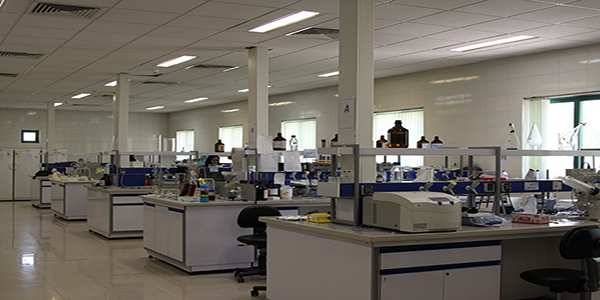
Our services include
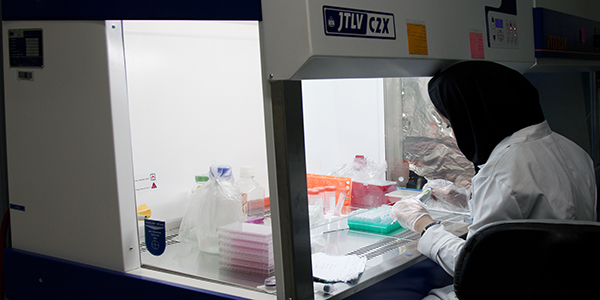
- DNA-based tests and PCR performance
- Genetic identity determination
- Diagnosis of genetic diseases
- Examination of genes associated with specific traits
- And more...
- RNA-based tests and Real-Time PCR
- Gene expression measurement
- Diagnosis of viral and bacterial infections
- Viral load assessment
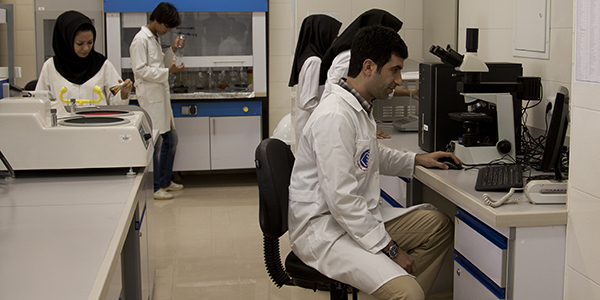
- Bacterial strain identification based on 16S rRNA gene
- Accurate identification of bacterial species
- Microbiome examination
- Quality control of foodstuffs
- And more...
- Real-Time PCR data analysis
- Interpretation of test results
- Calculation of gene expression levels
- Drawing graphs and tables
- And more...
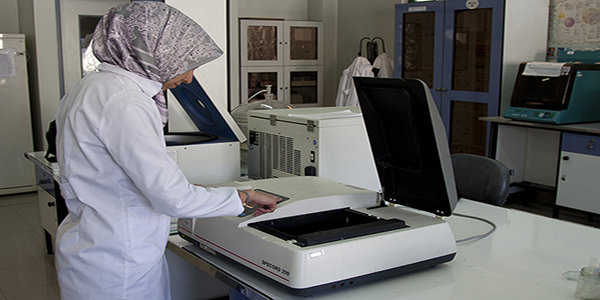
- GMO Detection tests
- Identification of genetically modified products
- Quality control of foodstuffs
- Labeling of genetically modified products
- And more...
- Next Generation Sequencing (NGS)
- Whole genome sequencing
- Exome sequencing
- Gene panel sequencing
- And more...
- Sanger Sequencing
- Sequencing of small DNA fragments
- NGS sequencing validation
- Determination of specific gene sequences
- And more...
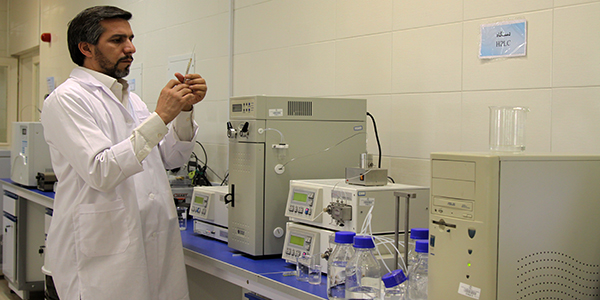
- Molecular tests for livestock and poultry
- Molecular disease diagnosis
- Molecular gender determination
- Examination of genetic traits
- And more...
- Food fraud and adulteration detection
- Detection of food adulteration
- Determination of food adulteration
- Quality control of foodstuffs
- And more...
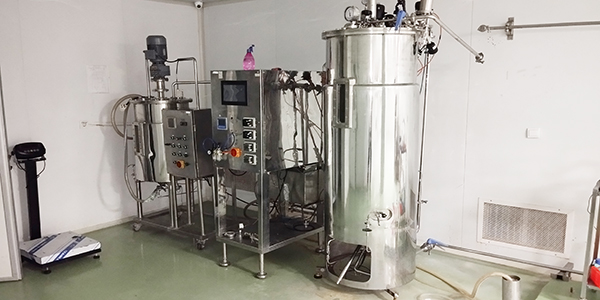
- Project consultancy and data analysis
- Consultation in various biotechnology fields
- Laboratory data analysis
- Interpretation of test results
- And more...
- Holding training courses and specialized workshops
- Training in the fundamentals and principles of biotechnology
- Laboratory techniques training
- Training in specialized software
- And more...
- Instrumental analysis tests and other assays
- Performing various tests using advanced equipment
- Providing accurate and reliable reports
- Ensuring the quality of test results
